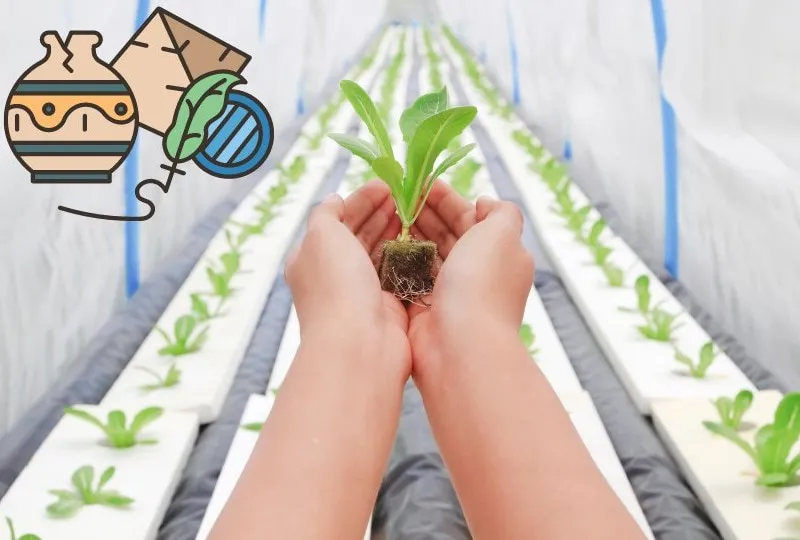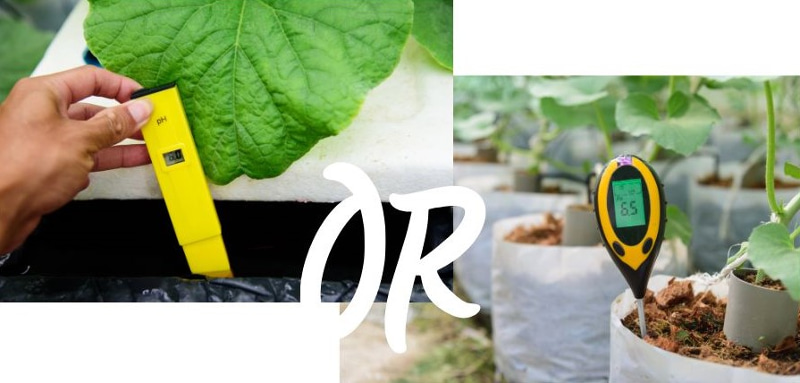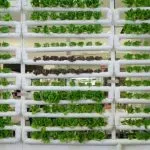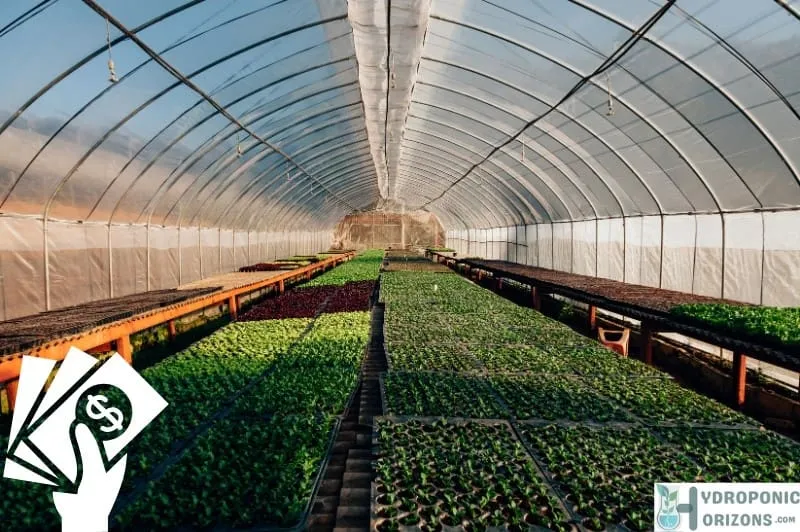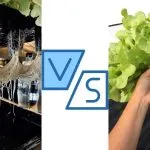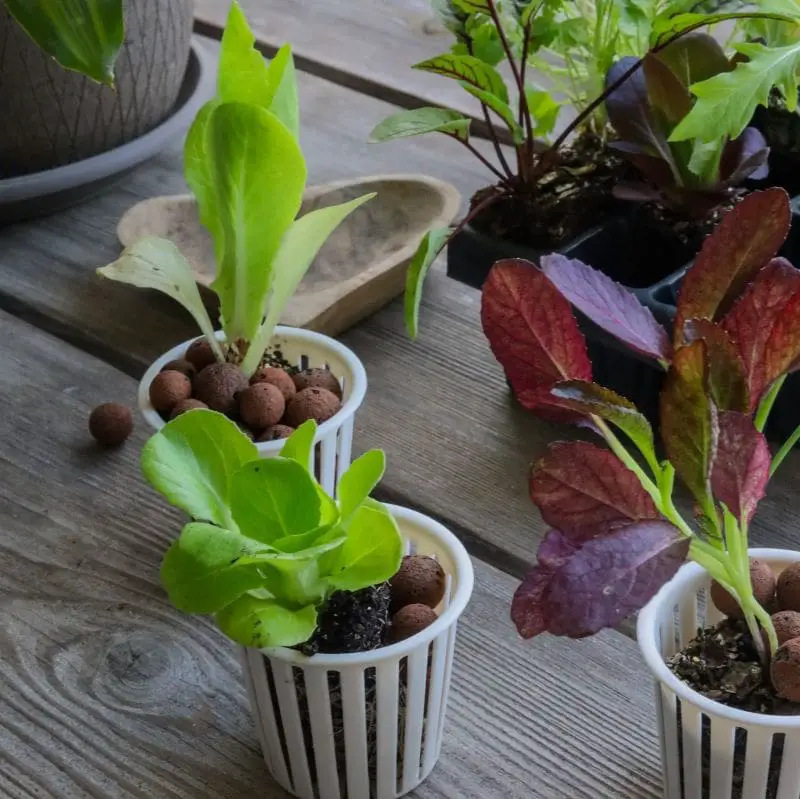Hydroponics Vs Organic Farming – Which one is better for the environment and for your health? This is a question that has been debated by experts in the field of agriculture for years. With the rise of modern technology, hydroponic farming has become increasingly popular. But does it truly stand up to the traditional method of organic farming?
In short, organic farming is a method of growing crops without the use of synthetic chemicals, while hydroponic farming involves growing plants in nutrient-rich water solutions. Sachin Patel, a functional medicine practitioner, suggests that both methods have their pros and cons. While organic farming may be more environmentally friendly, it may not always produce the same quantity or quality of crops as hydroponic farming. On the other hand, hydroponics may produce high yields but can also require more energy and resources.
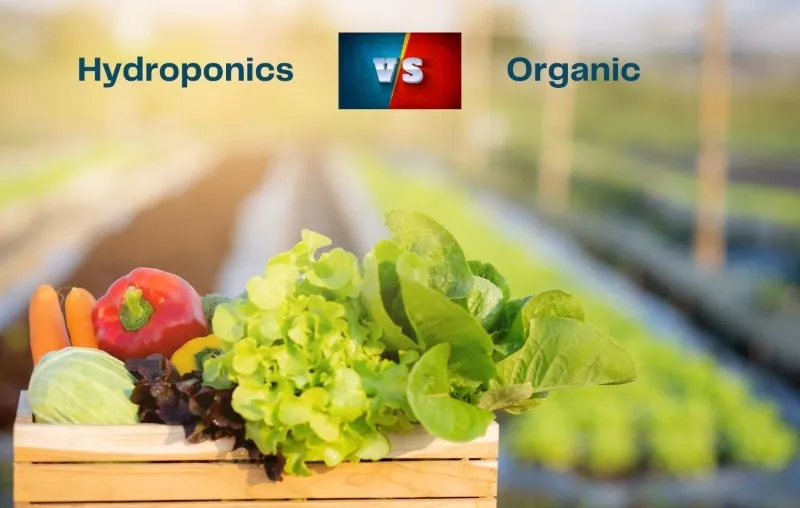
But these are not the only factors to consider when deciding which farming method to support. In this article, we’ll delve deeper into the advantages and disadvantages of both methods and explore how they affect the environment and our health. So, whether you’re a farmer or a consumer, let’s explore the world of hydroponics vs organic farming and see which one comes out on top. Maybe you can have both!
- Hydroponic Gardening Definition and Advantages
- Organic Gardening Definition and Benefits
- Importance of Sustainable Agriculture
- Similarities Between Hydroponic and Organic Farming
- Difference Between Organic and Hydroponic
- Certified Organic Vs. Hydroponic Controversy: Why is Hydroponics Not Organic?
- Is Hydroponics Healthy?
- Does Organic Mean Pesticide-free?
- Can Hydroponics Be Organic?
- Top Reasons to Go Organic With Hydroponic Farming
- Biggest Challenges With Organic Hydroponic Growing Systems
- FAQs
Hydroponic Gardening Definition and Advantages
Hydroponic gardening is a method of growing plants using a water-based nutrient solution instead of soil. This technique can include the use of aggregate substrates, such as vermiculite, coconut coir, or perlite, to support the plants and facilitate nutrient absorption. National Agricultural Library states that hydroponic systems are popular among small farmers, hobbyists, and commercial enterprises.
One significant advantage of hydroponic farming is its potential for urban farming. Since it doesn’t require soil and can be set up indoors, hydroponics allows you to grow plants in places that would not normally be available, such as densely populated areas or limited spaces.
Another benefit of hydroponics is their efficient use of water. Compared to traditional soil-based farming, hydroponics uses up to 90% less water, as it recycles water in a closed-loop system. This makes it a more sustainable option, especially in areas where water is scarce.
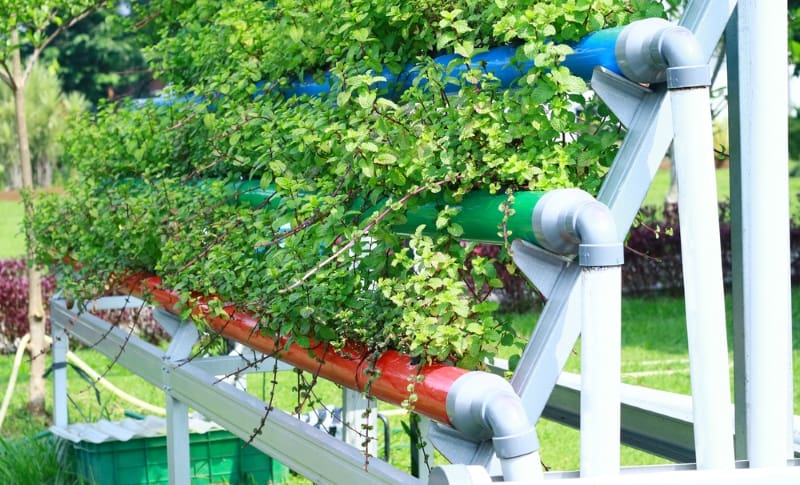
Additionally, hydroponic gardening often leads to faster plant growth and higher yields due to the optimal delivery of nutrients directly to the plant roots. This efficient nutrient delivery also reduces the likelihood of pests or diseases that can affect soil-based farming.
Overall, hydroponic gardening offers numerous advantages, making it a viable alternative to traditional organic farming. Whether you’re a small-scale urban farmer or a commercial enterprise, hydroponic systems can provide you with sustainable, efficient, and high-yielding crop production opportunities.
Organic Gardening Definition and Benefits
Organic gardening is the practice of growing plants and crops without using synthetic chemicals or genetically modified organisms. It relies on natural processes, such as soil development, nutrient cycling, and pest control, to create a sustainable and healthy environment for plants.
When you opt for organic gardening, you’re making a conscious decision to avoid synthetic fertilizers, pesticides, and herbicides. Instead, you use organic matter like compost, animal manure, and cover crops to enrich the soil and provide nutrients for your plants. This approach also emphasizes the use of biological controls and integrated pest management to keep pests and diseases in check.
There are several advantages of organic farming that you can enjoy with your own organic garden. Here are some of the key benefits:

- Improved soil health: Organic practices like composting and crop rotation help maintain and improve soil health, which leads to more productive and resilient plants.
- Environmental sustainability: By using fewer synthetic chemicals, organic gardening reduces the potential for water pollution, soil degradation, and impacts on biodiversity.
- Better flavor and potential nutritional benefits: Organic farmers argue that their produce has better flavor and possibly higher nutritional content compared to conventionally grown or hydroponically grown crops.
To get started with your own organic garden, consider these tips:
- Choose the right location for your garden, ensuring it has adequate sunlight and good drainage.
- Test your soil and make necessary amendments with organic matter like compost and aged manure.
- Select plants that are well-suited for your area and resistant to pests and diseases.
- Employ natural methods for pest control, such as companion planting and attracting beneficial insects.
- Rotate your crops to prevent soil-borne diseases and maintain soil fertility.
By embracing organic gardening principles, you’re not only contributing to a healthier ecosystem but also enjoying the benefits of fresh, flavorful, and nutritious homegrown produce.
Importance of Sustainable Agriculture
In today’s world, it’s essential for you to be aware of the importance of sustainable agriculture. This integrated and systematic approach to plant and animal production ensures efficient use of limited resources while protecting the environment and preserving the earth’s natural resource base. Sustainable agriculture is a core practice for the future of farming, as it considers both the needs of the present and the well-being of future generations.
One key aspect of sustainable agriculture is the ability to feed the increasing global population without harming the environment. Hydroponic farming is a method that requires less water and can yield higher amounts of food. This technique contributes to addressing food shortages in vulnerable areas around the world, as emphasized by the Food and Agriculture Organization of the United Nations. As you can see, adopting sustainable agriculture practices like hydroponics is a way to ensure food security and reduce poverty among smallholder farmers who produce food for more than 50% of the population in low and middle-income countries, according to Harvard Business Review.
Another benefit of sustainable agriculture is its potential for environmental preservation and restoration. As pointed out by Princeton University, large-scale vertical farming in urban centers can not only provide food for the foreseeable future but also allow large tracts of land to return to their natural state. This restoration promotes ecosystem functions and services while reducing the amount of land needed for traditional agriculture.
Similarities Between Hydroponic and Organic Farming
Though hydroponic and organic farming may seem quite different at first glance, they actually share some similarities. In both methods, you’re aiming to cultivate healthy, sustainable plants that provide a viable food source for your community.
First and foremost, both methods emphasize environmental responsibility. Hydroponic farming requires less water and land use compared to traditional soil methods, as it relies on a closed-loop water system that recirculates the water used for plant growth. Similarly, organic farming strives to minimize the negative environmental impact by avoiding synthetic pesticides and fertilizers.
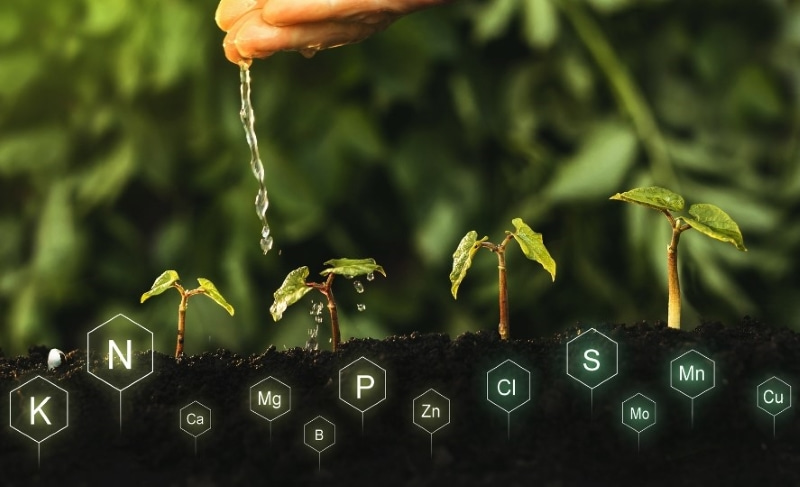
Both systems value the importance of plant nutrition. Hydroponic agriculture ensures plants receive essential nutrients through efficient liquid mineral fertilizers, while organic farming focuses on enriching the soil with compost and other natural additives to foster healthy plant growth.
Another similarity can be found in the methods used for pest control. Despite using different approaches, both aim to reduce the use of harmful chemicals. Organic farming makes use of natural pesticides from plants, minerals, and microorganisms, while hydroponic farming takes advantage of the controlled environment, ensuring that crops are grown in a sterile environment with minimal need for chemical intervention.
Ultimately, the primary goal of both hydroponic and organic farming is to provide a reliable, sustainable food source for people. By focusing on environmental responsibility, plant nutrition, and effective pest management, you can trust that both systems are making efforts to produce high-quality, nutritious food.
Difference Between Organic and Hydroponic
In this section, you’ll learn about the differences between organic and hydroponic farming, focusing on the environmental impact, nutrient content, cost, yield, and space efficiency.
Environmental Impact
Organic farming is focused on maintaining a well-balanced ecosystem, involving soil, plants, animals, and pests. It strives to improve soil health. On the other hand, hydroponic agriculture is a more sterile environment with precise controls, extended growing seasons, and reduced pesticide usage.
Nutrient Content
Organic farming uses compost and other additives as the primary fertilizers, whereas hydroponic farming employs highly bioavailable liquid mineral fertilizers. While both methods provide essential nutrients to plants, hydroponic gardening allows for more precise control over nutrient levels, promoting optimal plant growth.
Cost
Organic farming can be more expensive due to the cost of organic fertilizers and the labor-intensive nature of managing a diverse ecosystem. Hydroponics, however, can be more cost-effective as it requires less water and has reduced labor costs due to automation and precise environmental controls.
Yield and Space Efficiency
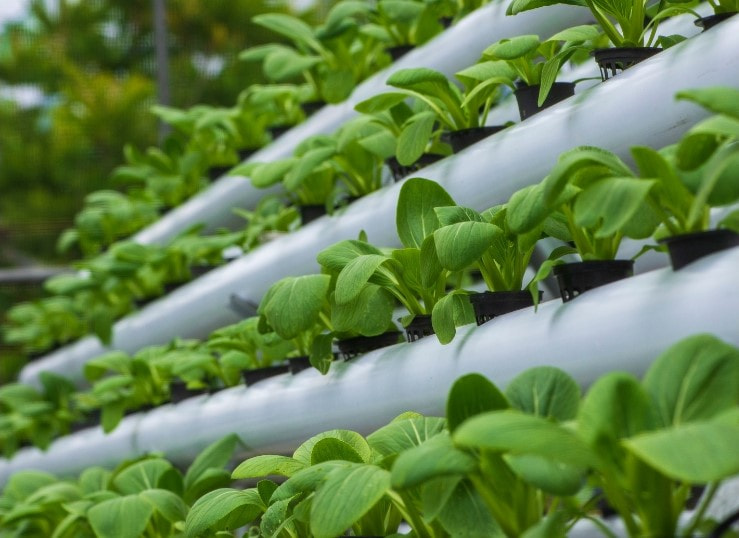
In terms of yield, hydroponic farming has the advantage of increased production due to controlled environments and extended growing seasons. It also offers the benefit of being more space-efficient, with plants grown in trays or towers indoors. This makes it suitable for areas with limited space or harsh environmental conditions.
Certified Organic Vs. Hydroponic Controversy: Why is Hydroponics Not Organic?
When comparing hydroponics to organic farming, you might be wondering whether hydroponics can be considered organic. It’s important to know that there is an ongoing controversy around the classification of hydroponic agriculture as organic.
In the United States, the USDA currently allows hydroponic production to be certified organic if it meets specific criteria outlined by the OFPA and USDA regulations. This means that producers can grow and sell hydroponic produce as organic if they meet these requirements and are certified by a USDA accredited third-party organization.
However, in Europe, the situation is different. Crops grown hydroponically cannot be labeled as organic, which poses the question: why is hydroponics not considered organic in some parts of the world?
One of the main concerns is the way hydroponics is practiced. Hydroponics grows crops in nutrient-rich solutions, without using soil. Critics argue that this method contradicts the essence of organic farming, which is based on fostering soil health and maintaining natural ecosystems. The organic farming ethos revolves around the connection between healthy soil and healthy plants. For instance, organic farming requires that you “maintain or enhance soil”, whereas hydroponic systems don’t involve soil and can be seen as focusing primarily on efficiency rather than soil preservation.
While hydroponic systems can be sustainable and environmentally friendly in some cases, the debate over whether they should be considered organic is still ongoing. As a consumer, you should be aware of this controversy and make informed decisions based on your own values and preferences.
Is Hydroponics Healthy?
When it comes to the healthiness of hydroponic vegetables, the lack of soil means there is no exposure to outdoor contaminants. This can result in a reduced need for pesticides to protect the plants from insects or pathogens. Some hydroponic growers even use organic farming methods that qualify their produce to be labeled as organic.
However, the nutritional content of hydroponically grown vegetables is a topic of debate. While some argue that organic, soil-grown vegetables have superior flavor and nutritional content, this has not been scientifically settled. The factors that influence the nutritional content of vegetables are complex and can depend on factors like growing conditions and the specific plant species being grown.
In summary, hydroponic farming has many advantages, such as water conservation and reduced pesticide use. The healthiness of hydroponically grown vegetables may vary depending on factors like growing conditions and plant species, but there is no definitive evidence to suggest that they are substantially less nutritious or less healthy than their soil-grown counterparts.
Does Organic Mean Pesticide-free?
When you think about organic farming, you might assume that it means no pesticides are used at all. However, that’s not entirely accurate. Organic farming does use pesticides, but they are typically derived from natural sources, such as plants, minerals, and microorganisms, rather than synthetic ones commonly used in conventional farming methods. The main focus of organic farming is to create a well-balanced ecosystem, involving soil, plants, animals, and pests that are interconnected to one another.
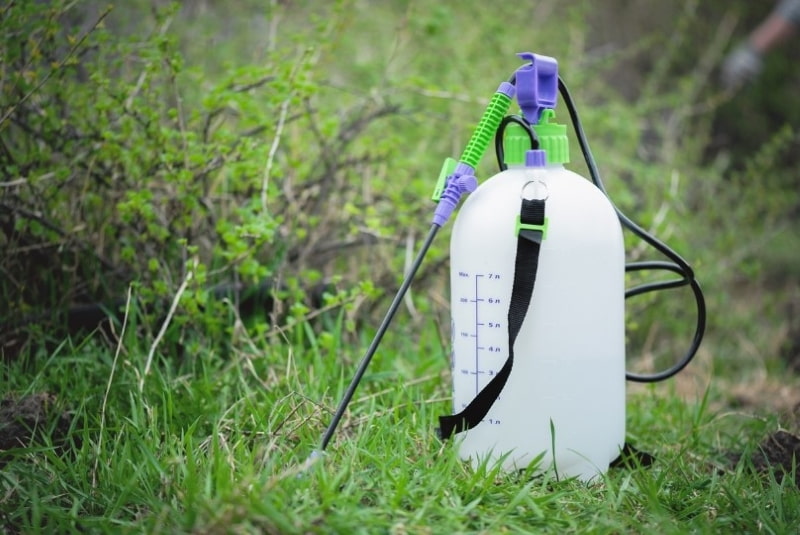
According to Harvard Health, organic foods generally have fewer pesticide residues compared to conventionally grown produce. However, both types of produce have residue levels within the safe range for consumption. It’s also unclear if the pesticides used in organic farming are safer than nonsynthetic pesticides used in conventional farming.
To summarize, while organic farming generally uses fewer and naturally-derived pesticides, it doesn’t necessarily mean that your produce will be entirely pesticide-free. It’s always a good idea to wash your fruits and vegetables thoroughly before consumption, regardless of whether they are organically or conventionally grown.
Can Hydroponics Be Organic?
When it comes to farming, you may be wondering if hydroponic farming can be considered organic. Let’s explore this topic further and discuss how hydroponic systems can achieve organic certification and which systems can be purely organic.
Hydroponic Organic Certification
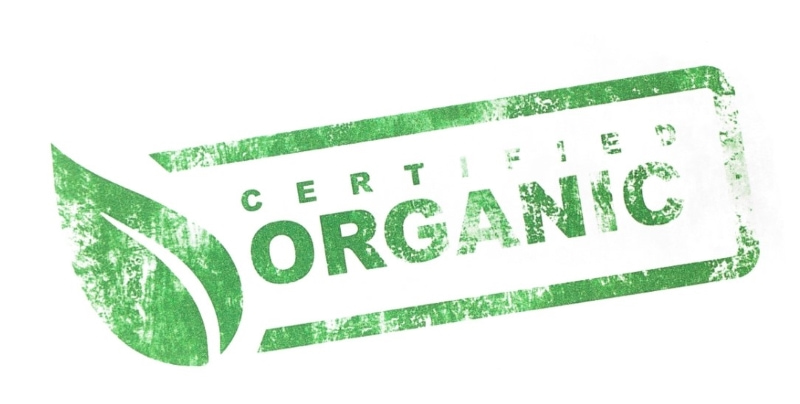
Yes, hydroponic farming can be organic, provided that certain conditions are met. In fact, a federal judge upheld the USDA’s decision that organic farming does not necessarily require soil, thus allowing hydroponic plants to qualify as organic. As long as hydroponic farmers use only organic pesticides (if needed), their produce can receive organic certification. Proponents of hydroponics contend that it is more energy and water efficient than soil-based farming and can be just as sustainable and eco-friendly as traditional farms.
Which Hydroponic System Is Purely Organic
To ensure that a hydroponic system is purely organic, consider the following when trying your hand with at home hydroponics:
- Water: Use high-quality water without chemical additives or contaminants.
- Nutrients: Employ organic nutrients for hydroponics, which are derived from natural sources like fish meal, kelp, and worm castings.
- Medium: Select organic growing mediums, such as coconut coir, peat moss, or perlite, instead of synthetic materials.
- Pest Management: Adopt organic pest control methods, like beneficial insects, companion planting, and natural pesticides.
By following these guidelines, you can develop a hydroponic system that is purely organic and environmentally friendly. So, with careful planning and adherence to organic principles, your hydroponic farm can indeed produce organic, high-quality crops.
Top Reasons to Go Organic With Hydroponic Farming
Let’s explore some of the top reasons why you should choose to go organic with hydroponic farming.
Organic Crops Are Better for You
Choosing organic hydroponic farming means you’re providing yourself and your consumers with nutrient-rich, chemical-free produce. This approach eliminates the use of synthetic fertilizers, pesticides, and genetically modified organisms (GMOs). Consequently, you can enjoy the health benefits of consuming crops free from toxins and harmful chemicals found in non-organic produce.
Organic Crops Taste Better
Many people believe that organic crops have a superior taste compared to conventionally grown produce. One reason is that organic cultivation methods put more emphasis on improving the nutrient content of the plant, ultimately enhancing its flavor profile. By growing organic hydroponic crops, you’re providing high-quality produce that is not only healthy but also flavorsome.
Certified Organic Is a Widely Recognized and Trusted Label
Consumers are becoming increasingly conscious of where their food comes from and how it’s produced. By choosing organic hydroponic farming, you can obtain certifications that demonstrate your commitment to safe, sustainable, and responsible agriculture practices. These certifications serve as a testament to the quality of your produce and can offer a competitive advantage in the market by attracting eco-conscious consumers.
Organic Crops Sell at a Premium
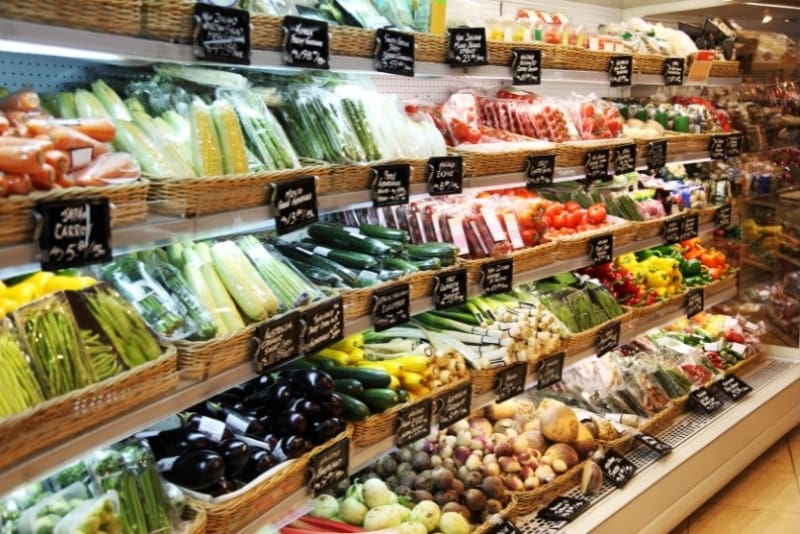
The growing demand for organic produce has resulted in higher prices for farmers, as consumers are willing to pay a premium for healthier and more responsibly grown products. By combining organic practices with hydroponic farming, you have the opportunity to tap into this lucrative market while producing nutrient-dense crops that cater to a health-conscious demographic. This makes the higher hydroponics cost per square foot more worth it.
Biggest Challenges With Organic Hydroponic Growing Systems
As you venture into organic hydroponic growing systems, it’s important to be aware of the challenges you may face. Let’s discuss some of the most significant obstacles you’ll likely encounter when choosing to grow plants organically in a hydroponic system.
Organic Hydroponic Nutrients Are More Difficult to Get Right
One challenge with organic hydroponics is determining the right balance of organic nutrients for hydroponics systems. While hydroponic fertilizers are easily absorbed by plants, organic nutrients require additional processes to be broken down and made bioavailable. This extra step may make it more difficult for you to ensure your plants receive the proper nutrition they need.
Pest Management Options Are Limited
Pest management can be challenging in organic hydroponics. Due to the restrictions on the use of synthetic chemicals, you might find that your options for pesticidal treatments are limited. This could lead to more frequent pest problems, as well as more time and effort spent in managing pests organically.
Organic Yields May Be Smaller
Although organic hydroponics has its benefits, studies suggest that crop yields may be smaller than those produced using conventional hydroponic methods. This is generally due to the higher reliance on organic matter and the increased complexity of managing nutrients and pests naturally.
Organic Materials Are Sometimes Limited and More Costly
Lastly, sourcing organic materials for your hydroponic system might prove challenging. Some regions have limited availability of organic inputs, such as composts and fertilizers. Additionally, organic materials can be more expensive than their conventional counterparts. This combination of scarcity and higher prices may impact the financial viability of your organic hydroponics project.
By understanding these challenges, you can make more informed decisions and better prepare for your organic hydroponic growing journey.

